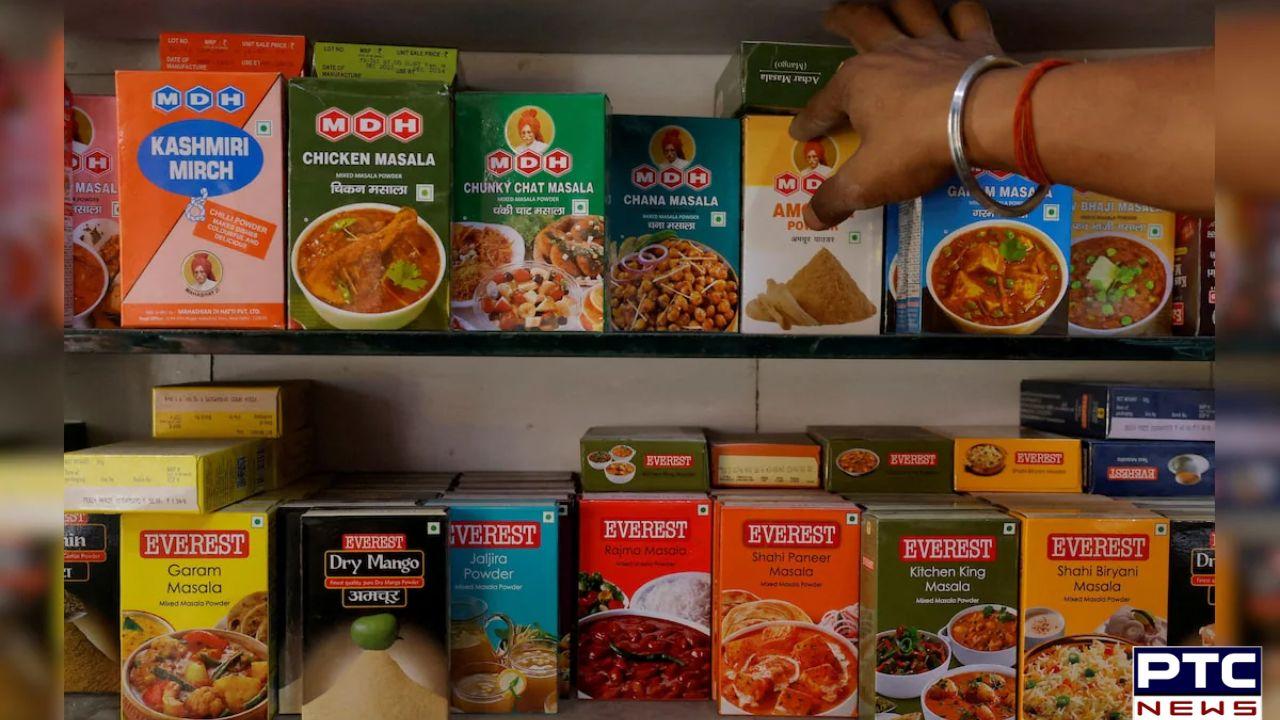- March 28, 2025
- Updated 2:22 am
Amid controversy over Indian spices, food safety body introduces new carcinogen detection method
PTC News Desk: According to senior official sources, the Food Safety and Standards Authority of India (FSSAI) developed a novel technique to identify ethylene oxide in spices as a result of the sales of certain Indian spices being prohibited in Singapore and Hong Kong.
Ethylene oxide, a chemical that is frequently used as a disinfectant in spices, is known to cause cancer. While prohibiting a number of items from the two largest Indian spice companies, MDH and Everest, Hong Kong and Singapore announced its existence.
According to the sources, this approach is more precise and has been verified by the national reference laboratory of the food safety authority, ICAR-National Research Centre For Grapes.
The sources claim that this new technique will be used to identify ethylene oxide in goods that are produced domestically, exported, and imported into other nations.
According to sources, the technique can also identify ethylene oxide in packaged goods. Following the action against Indian spices in Singapore and Hong Kong, more than 1,500 samples were gathered from spice companies and marketplaces and delivered to laboratories for analysis.
Ethylene Oxide: What Is It?
The chemical ethylene oxide, which is used to disinfect spices, is the main cause of the ban on Indian spices in Singapore and Hong Kong. It is recognised, nevertheless, to possess carcinogenic qualities. A Group 1 carcinogenic substance, ethylene oxide is defined as one for which “there is enough evidence to conclude that it can cause cancer in humans” by the International Agency for Research on Cancer.
Singapore stated that “ethylene oxide is allowed to be used in the sterilisation of spices” in a news release announcing its decision to outlaw several Indian spices, but it also stated that “exposure to this substance should be minimised as much as possible.”
“Although there is no immediate risk to consumption of food contaminated with low levels of ethylene oxide, long term exposure may lead to health issues,” added the statement. It further stated that Singapore does not permit the use of ethylene oxide in food.
India’s Reaction
According to the Center, India has some of the strictest regulations in place to reduce the amount of pesticide residues in food. The Food Safety and Standards Authority of India (FSSAI) is allegedly allowing ten times higher pesticide residue in herbs and spices, according to certain media sources.
The Health Ministry stated earlier this month that “such reports are false and malicious” and that India has some of the strictest Maximum Residue Limit regulations in the world.
The FSSAI has gathered samples and sent them for testing in the wake of the ban in Singapore and Hong Kong. Specific instructions have been released by the Spices Board to help exporters avoid ethylene oxide contamination in goods that are sent from India. According to the instructions, exporters should refrain from using it as a sterilise agent and make sure that suppliers of packaging materials, carriers, and warehouses never use this chemical.
The claims that MDH used ethylene oxide have been refuted. In response to reports of the restriction last month, it stated, “We reassure our buyers and consumers that we do not use ethylene oxide at any stage of storing, processing, or packing our spices.”
At that point, it had declared that it had not heard from either Hong Kong or Singaporean authorities. Everest has refuted claims that its goods had been outlawed in Hong Kong and Singapore, stating only one of the sixty items it sells in Singapore is undergoing investigation.
Recent Posts
- Crown of goddess Kali, gifted by PM Modi, stolen from temple in Bangladesh
- Hezbollah leader survives assassination attempt amid Israeli strikes that kill 22 in Beirut
- ਕ੍ਰਿਕਟ ਦੇ ਬਦਲੇ ਨਿਯਮ, ਹੁਣ ਇਸ ਕੇਸ ‘ਚ ਦੁਬਾਰਾ ਨਹੀਂ ਮਿਲੇਗੀ ਬੈਟਿੰਗ, ਮੰਨਿਆ ਜਾਵੇਗਾ
- ਸਚਿਨ ਤੇਂਦੁਲਕਰ ਦੇ ਬਰਾਬਰ ਪਹੁੰਚੇ ਜੋ ਰੂਟ, ਪਰ ਵਿਰਾਟ ਦੇ ਇਸ ਰਿਕਾਰਡ ਤੋਂ ਅਜੇ ਵੀ ਦੂਰ
- Ratan tata death: ਸਿਰਫ ਵੋਲਟਾਸ ਹੀ ਨਹੀਂ, ਸਵੇਰ ਤੋਂ ਰਾਤ ਤੱਕ ਤੁਹਾਡਾ ਕੰਮ ਟਾਟਾ ਦੇ ਬਿਨਾਂ ਨਹੀਂ ਚੱਲ ਸਕਦਾ
